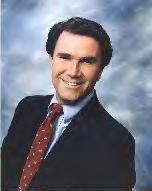
A common and legitimate criticism of the atheist worldview is that atheism is illogical and irrational (See also: Atheism and logic and Atheism and irrationality)[4]
- See also: Atheism and logical fallacies
Meaning of the word equivocation
Equivocation is the use of word with multiple meanings, and then using a different meaning in the conclusion than in the premise.
For example: "The coach said we should eat light, so take your heavy coat off."
Equivocation is a logical fallacy.[5]
Atheism, equivocation and the origin in the universe
See also: Atheism and the origin of the universe
Creationist scientists demonstrate that the first law of thermodynamics and second law of thermodynamics argue against an eternal universe and they also demonstrate that these laws point to the universe being supernaturally created.[6][7][8]
The Christian Apologetics and Research Ministry (CARM) points out that the prominent atheist Lawrence Krauss uses the logical fallacy of equivocation in his failed attempt to explain the origin of the universe. See also: Atheism and logical fallacies
CARM declares:
| “ | But I have a bone to pick with Dr. Krauss about his latest book, A Universe from Nothing, which has the subtitle Why there is something rather than nothing? Those having taken an intro to philosophy class will recognize that Krauss’ subtitle is a rendition of the most basic philosophical question of existence, which has been attributed to truth seekers such as Gottfried Leibniz who asked, “Why do we have something rather than nothing at all?”....
You would think that by the title of Krauss’ book he answers the question that Leibniz posed, but he doesn’t. Instead, he redefines what ‘nothing’ is. ‘Nothing’ to Dr. Krauss would be empty space or the quantum vacuum.... Dictionary.com defines ‘nothing’ as:
But, I think the best definition of ‘nothing’ is Aristotle’s: “Nothing is what rocks dream about.” Why does Krauss attempt to redefine ‘nothing’? Because Krauss is an atheist and a fairly acerbic one at that. He not only doesn’t believe in God but also doesn’t like God. Here is the problem Krauss faces: If nothing is really nothing and we have something (the universe) from a real nothing, then it points to the universe having a beginning. And as Stephen Hawking has observed, “Many people do not like the idea that time has a beginning, probably because it smacks of divine intervention.” The problem is that empty space and/or the quantum vacuum aren’t nothing; they’re something. So Krauss’ book does absolutely ‘nothing’ to answer Leibniz’s question and leaves his readers no better off than they were before where the issue of the origin of the universe is concerned. All the scientific evidence points to the universe exploding out of true nothingness, but atheists like Krauss hate this truth.[9] |
” |
Atheism, evolution and equivocation
Since World War II a majority of the most prominent and vocal defenders of the evolutionary position which employs methodological naturalism have been atheists and agnostics (see also: Causes of evolutionary belief)[10]
Critics of evolution state that many of today's proponents of the evolutionary position have diluted the meaning of the term "evolution" to the point where it defined as or the definition includes change over time in the gene pool of a population over time through such processes as mutation, natural selection, and genetic drift.[11] Dr. Jonathan Sarfati of Creation Ministries International declares concerning the diluted definition of the word "evolution":
| “ | ...many evolutionary propagandists are guilty of the deceitful practice of equivocation, that is, switching the meaning of a single word (evolution) part way through an argument. A common tactic, ‘bait-and-switch,’ is simply to produce examples of change over time, call this ‘evolution,’ then imply that the GTE [General Theory of Evolution] is thereby proven or even essential, and creation disproved. The PBS Evolution series and the Scientific American article are full of examples of this fallacy.[12][13] | ” |
Throughout his book Why Evolution is True, the atheist Jerry Coyne abuses the term evolution, defining it in multiple ways and equivocating it.[14] In addition, he shows a poor understanding of the creationist/creation science position.[15]
See also
References
- ↑ The Great Debate: Greg Bahnsen vs Gordon Stein
- ↑ Greg Bahnsen vs. Gordon Stein: The Great Debate (FULL)
- ↑ "The Great Debate: Does God Exist?"
- ↑ Atheism by Matt Slick
- Putting the Atheist on the Defensive by Kenneth R. Samples, Christian Research Institute Journal, Fall 1991, and Winter 1992, page 7.
- Atheists don’t own reason by Tom Gilson
- Why the Burden of Proof is on the Atheist by Professor Ralph McInerny
- Theism, Atheism, and Rationality by Alvin Plantinga
- The Irrational atheist: Dissecting the Unholy Trinity of Dawkins, Harris, and Hitchens by Vox Day, Benbella Books, Dallas, TX, 2008 , ISBN 1933771364; ISBN 978-1933771366
- ↑ Equivocation
- ↑ Evidences for God From Space—Laws of Science
- ↑ Thompson, Bert, So Long, Eternal Universe; Hello Beginning, Hello End!, 2001 (Apologetics Press)
- ↑ http://www.creationscience.com/onlinebook/AstroPhysicalSciences14.html
- ↑ Lawrence Krauss and the Atheist Definition of Nothing, by Robin Schumacher, edited by Matt Slick
- ↑
- Dr. Don Batten, A Who’s Who of evolutionists Creation 20(1):32, December 1997.
- Jonathan Sarfati, Ph.D.,F.M., Refuting Evolution, Chapter 1, Facts and Bias
- ↑
- ↑ Jonathan Sarfati,Ph.D., F.M. Refuting Evolution 2, Chapter 1, Argument: Creationism is religion, not science
- ↑ The PBS evolution website bills itself as "The most comprehensive evolutionary science resource on the Internet" but it is very poorly done.
- ↑ Jerry Coyne and the “Fact” of Evolution by Kyle Butt, Apologetics Press
- ↑ Why evolution need not be true: A review of Why Evolution is True by Jerry A. Coyne Viking Penguin, New York, 2009, reviewed by John Woodmorappe

